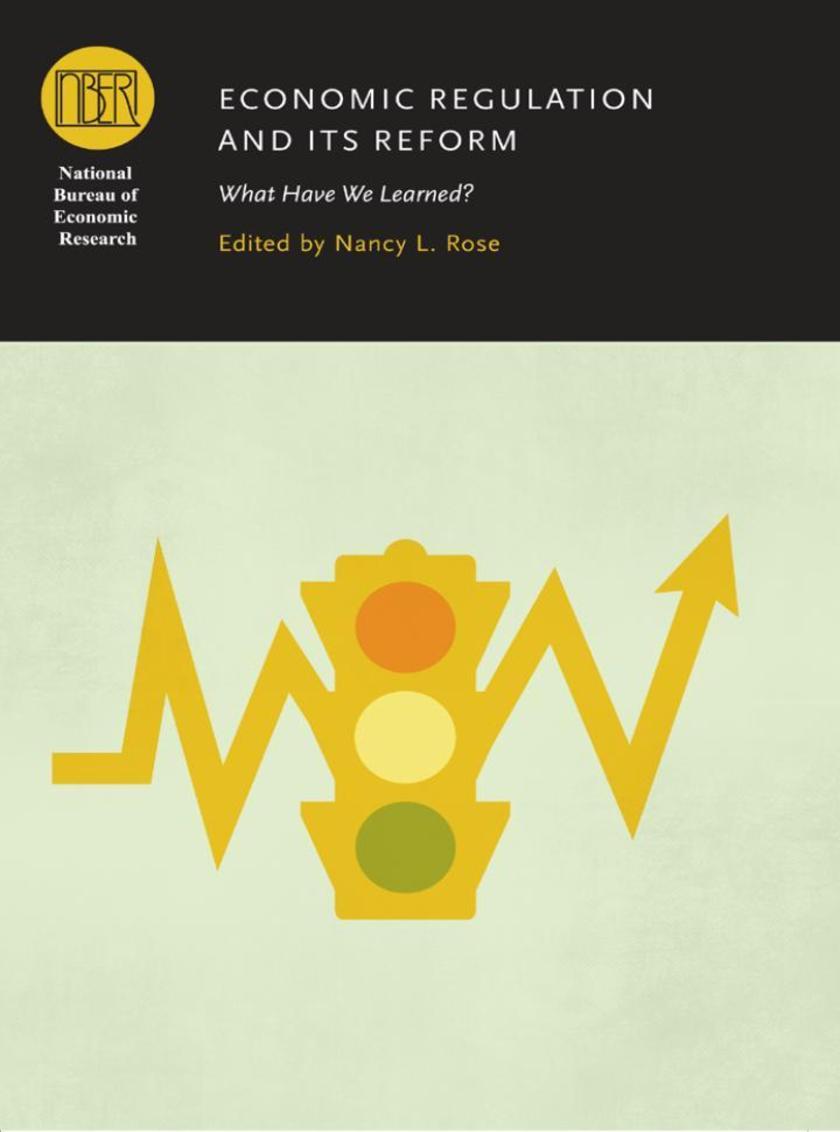
Economic Regulation and Its Reform
¥906.44
The past thirty years have witnessed a transformation of government economic intervention in broad segments of industry throughout the world. Many industries historically subject to economic price and entry controls have been largely deregulated, including natural gas, trucking, airlines, and commercial banking. However, recent concerns about market power in restructured electricity markets, airline industry instability amid chronic financial stress, and the challenges created by the repeal of the Glass-Steagall Act, which allowed commercial banks to participate in investment banking, have led to calls for renewed market intervention.Economic Regulation and Its Reform collects research by a group of distinguished scholars who explore these and other issues surrounding government economic intervention. Determining the consequences of such intervention requires a careful assessment of the costs and benefits of imperfect regulation. Moreover, government interventions may take a variety of forms, from relatively nonintrusive performance-based regulations to more aggressive antitrust and competition policies and barriers to entry. This volume introduces the key issues surrounding economic regulation, provides an assessment of the economic effects of regulatory reforms over the past three decades, and examines how these insights bear on some of today's most significant concerns in regulatory policy.

Institutional Foundations of Impersonal Exchange
¥488.54
Governments and development agencies spend considerable resources building property and company registries to protect property rights. When these efforts succeed, owners feel secure enough to invest in their property and banks are able use it as collateral for credit. Similarly, firms prosper when entrepreneurs can transform their firms into legal entities and thus contract more safely. Unfortunately, developing registries is harder than it may seem to observers, especially in developed countries, where registries are often taken for granted. As a result, policies in this area usually disappoint. ?Benito Arruada aims to avoid such failures by deepening our understanding of both the value of registries and the organizational requirements for constructing them. Presenting a theory of how registries strengthen property rights and reduce transaction costs, he analyzes the major trade-offs and proposes principles for successfully building registries in countries at different stages of development. Arruada focuses on land and company registries, explaining the difficulties they face, including current challenges like the subprime mortgage crisis in the United States and the dubious efforts made in developing countries toward universal land titling. Broadening the account, he extends his analytical framework to other registries, including intellectual property and organized exchanges of financial derivatives. With its nuanced presentation of the theoretical and practical implications, Institutional Foundations of Impersonal Exchange significantly expands our understanding of how public registries facilitate economic growth.

Resistance to Innovation
¥370.82
Every year, about 25,000 new products are introduced in the United States. Most of these products fail-at considerable expense to the companies that produce them. Such failures are typically thought to result from consumers' resistance to innovation, but marketers have tended to focus instead on consumers who show little resistance, despite these "e;early adopters"e; comprising only 20 percent of the consumer population.Shaul Oreg and Jacob Goldenberg bring the insights of marketing and organizational behavior to bear on the attitudes and behaviors of the remaining 80 percent who resist innovation. The authors identify two competing definitions of resistance: In marketing, resistance denotes a reluctance to adopt a worthy new product, or one that offers a clear benefit and carries little or no risk. In the field of organizational behavior, employees are defined as resistant if they are unwilling to implement changes regardless of the reasons behind their reluctance. Seeking to clarify the act of rejecting a new product from the reasons-rational or not-consumers may have for doing so, Oreg and Goldenberg propose a more coherent definition of resistance less encumbered by subjective, context-specific factors and personality traits. The application of this tighter definition makes it possible to disentangle resistance from its sources and ultimately offers a richer understanding of consumers' underlying motivations. This important research is made clear through the use of many real-life examples.
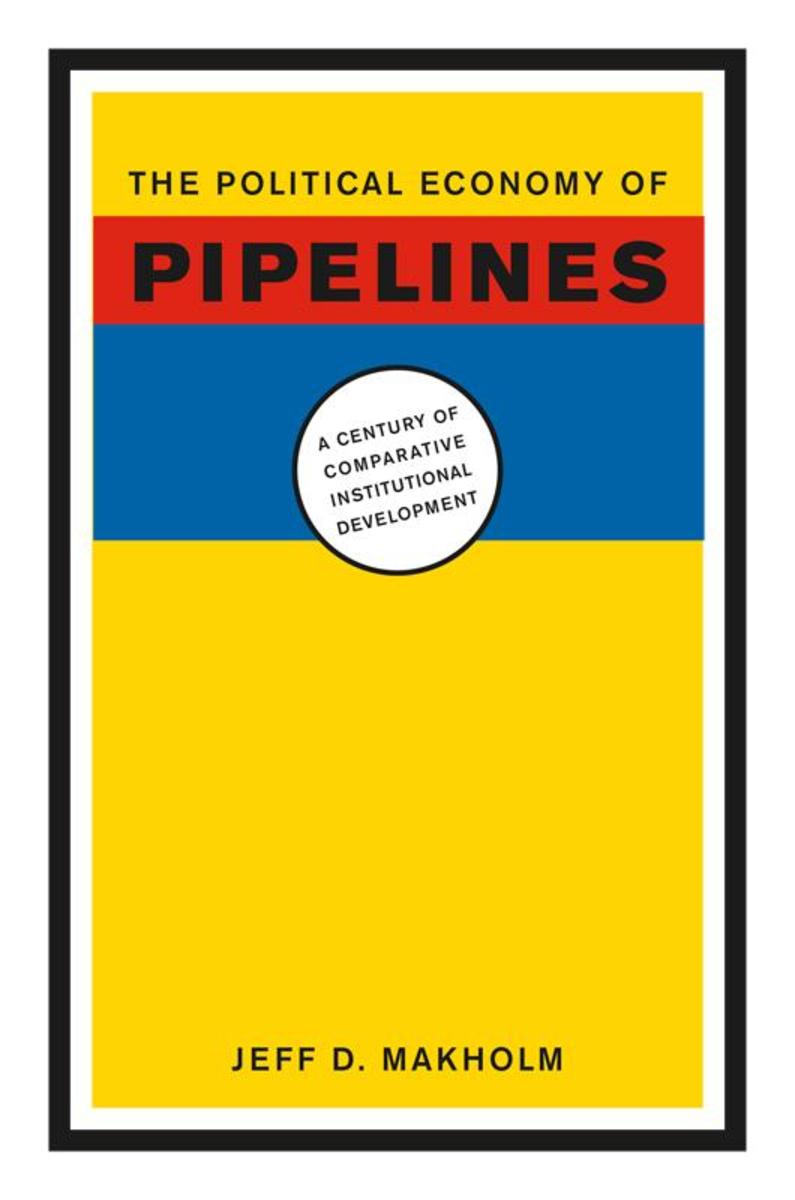
Political Economy of Pipelines
¥576.83
With global demand for energy poised to increase by more than half in the next three decades, the supply of safe, reliable, and reasonably priced gas and oil will continue to be of fundamental importance to modern economies. Central to this supply are the pipelines that transport this energy. And while the fundamental economics of the major pipeline networks are the same, the differences in their ownership, commercial development, and operation can provide insight into the workings of market institutions in various nations.?Drawing on a century of the world's experience with gas and oil pipelines, this book illustrates the importance of economics in explaining the evolution of pipeline politics in various countries. It demonstrates that institutional differences influence ownership and regulation, while rents and consumer pricing depend on the size and diversity of existing markets, the depth of regulatory institutions, and the historical structure of the pipeline businesses themselves. The history of pipelines is also rife with social conflict, and Makholm explains how and when institutions in a variety of countries have controlled pipeline behavior-either through economic regulation or government ownership-in the public interest.
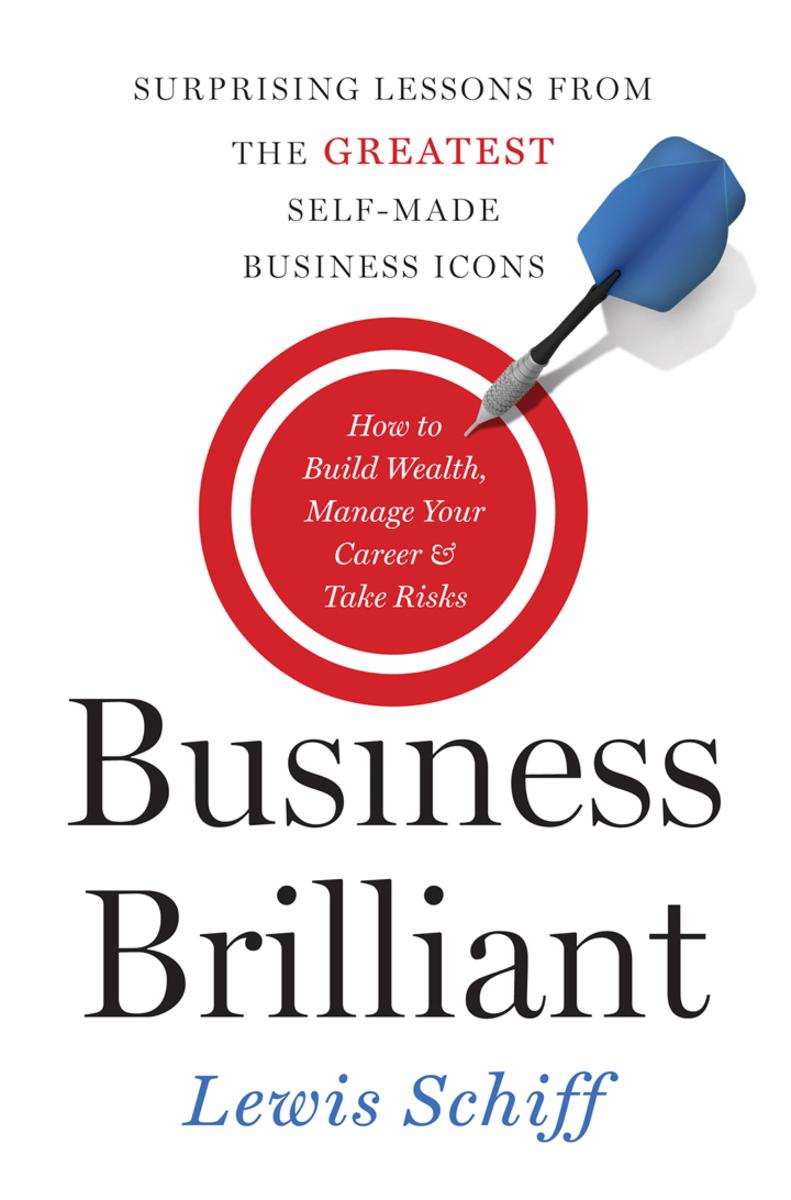
Business Brilliant
¥162.76
Ask a member of the middle class what it takes to become wealthy, and she'll tell you it takes a bold new idea. Tell that to a self-made millionaire, and he'll vehemently disagree. What explains the difference in mind-set between the self-made wealthy and the rest of usIt not what you think, as journalist and entrepreneur Lewis Schiff convincingly illustrates through groundbreaking research and compelling storytelling. For decades, the middle class has believed that the road to success meant working hard and playing by rules passed down from previous generations. But as the 2008 economic crisis has made clear, the old rules no longer apply. While household net worth has declined for most, self-made business leaders entrepreneurially minded individuals born into the middle class who have accumulated significant wealth have prospered. What makes these have-mores financially successful while the rest of us have never felt more uncertain about our professional and financial futuresIn Business Brilliant , Lewis Schiff reveals the eye-opening findings from a national survey of middle-class workers and self-made millionaires, offering practical guidance to show the rest of us what America self-made rich already know. Through his research, he holds a mirror to our most commonly held beliefs about success and then reveals the truth about how wealth is really created by surveying the truly wealthy. In doing so, he explodes the conventional wisdom and identifies the distinct principles practiced by individuals who may or may not be any smarter than the rest of the population but seem to understand instinctively how money is made. They don't employ business-as-usual practices; they adopt a Business Brilliant mind-set. The book illustrates how these self-made millionaires choose their careers, negotiate to win, and leverage social networks to accumulate their wealth. Schiff argues that it is the synergy behind seven uncommon practices, not serendipity or luck, that produces success. He offers a practical four-step program anyone can follow to position themselves to succeed more often and a roadmap to compare your own Business Brilliance to the executives and entrepreneurs who have successfully navigated our rapidly changing economy. While Business Brilliant doesn't promise to make you rich, it can help you achieve better results in your career and accumulate wealth faster.
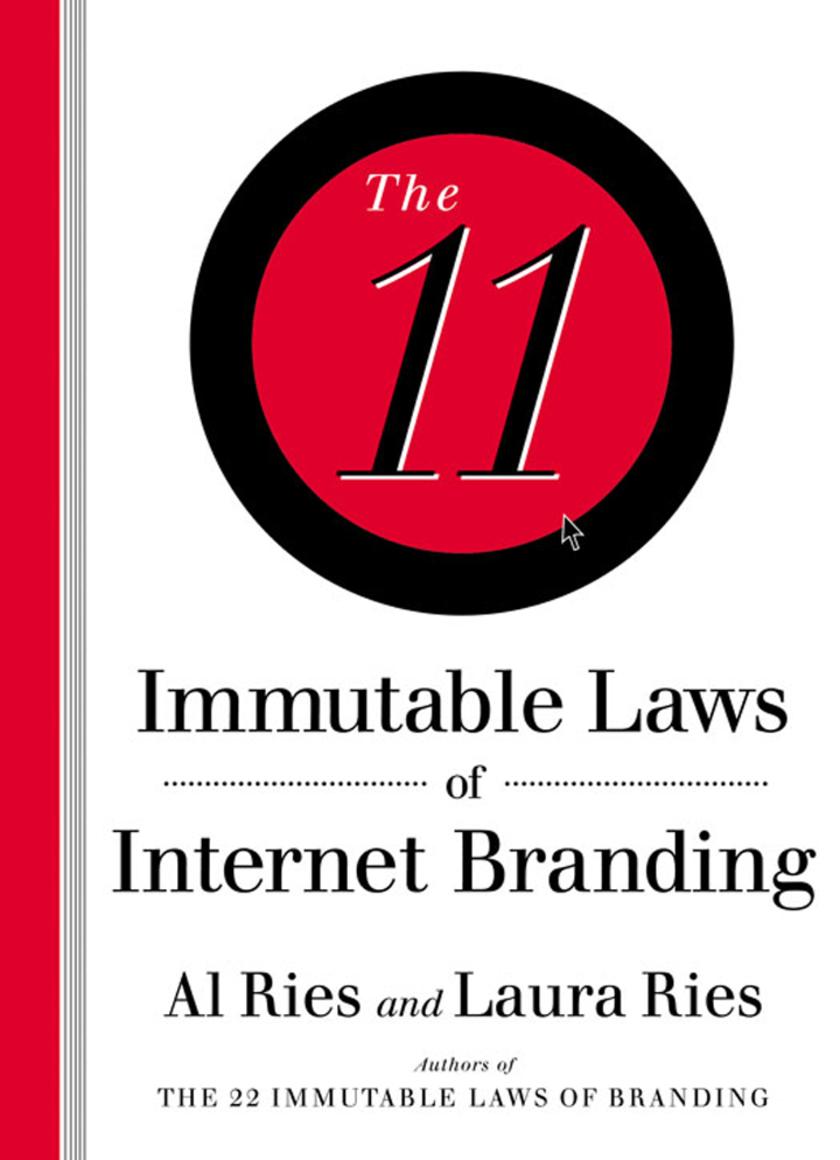
The 22 Immutable Laws of Branding
¥105.17
This marketing classic has been expanded to include new commentary, new illustrations, and a bonus book: The 11 Immutable Laws of Internet Branding Smart and accessible, The 22 Immutable Laws of Branding is the definitive text on branding, pairing anecdotes about some of the best brands in the world, like Rolex, Volvo, and Heineken, with the signature savvy of marketing gurus Al and Laura Ries. Combining The 22 Immutable Laws of Branding and The 11 Immutable Laws of Internet Branding, this book proclaims that the only way to stand out in today's marketplace is to build your product or service into a brand and provides the step-by-step instructions you need to do so. The 22 Immutable Laws of Branding also tackles one of the most challenging marketing problems today: branding on the Web. The Rieses divulge the controversial and counterintuitive strategies and secrets that both small and large companies have used to establish internet brands. The 22 Immutable Laws of Branding is the essential primer on building a category-dominating, world-class brand.
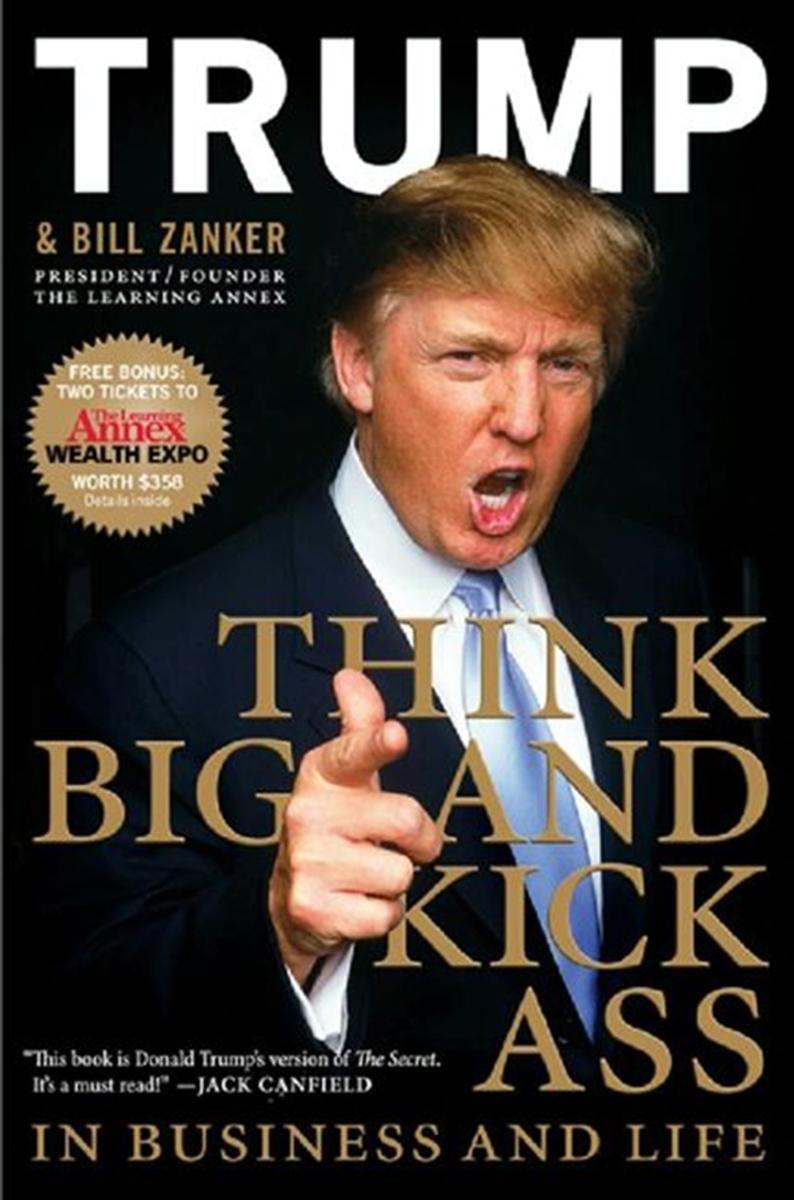
Think BIG and Kick Ass in Business and Life
¥94.10
Donald J. Trump is an icon: the very definition of the American success story. The star of The Apprentice and developer of some of the planet's most prestigious real estate, he's been on the bottom and risen to become one of the world's wealthiest men. Bill Zanker started The Learning Annex with $5,000 and grew it into a $5 million a year company. That was before he met Donald Trump. Thirty months later, after Zanker learned to think BIG himself, The Learning Annex is generating over $100 million a year in sales and still growing. Together, they're living examples of how thinking BIG and knowing when to back up your opinions aggressively regardless of what your critics or opponents might say can help you maximize your personal and professional achievements. For the first time ever, you too can learn Trump's secrets to thinking BIG and kicking ass! Learn: Momentum: the Big Mo. How to get it and how to get it back. Revenge: how and when to get it (and why it's so sweet). "I love you, now sign this!" Why contracts in business and personal life are so important. Real-life stories from people who've applied the think BIG formula in their own lives. These strategies are proven and attested to by those who've learned to think BIG from Donald Trump and found success in their own lives. Bill Zanker used Donald's strategies to grow the revenues of The Learning Annex twenty times in under three years. Both of them have been down and out, and know what it's like to feel the whole world's against you and both have risen to dizzying heights of success by thinking BIG and kicking ass! It is an attitude that can be easily learned.
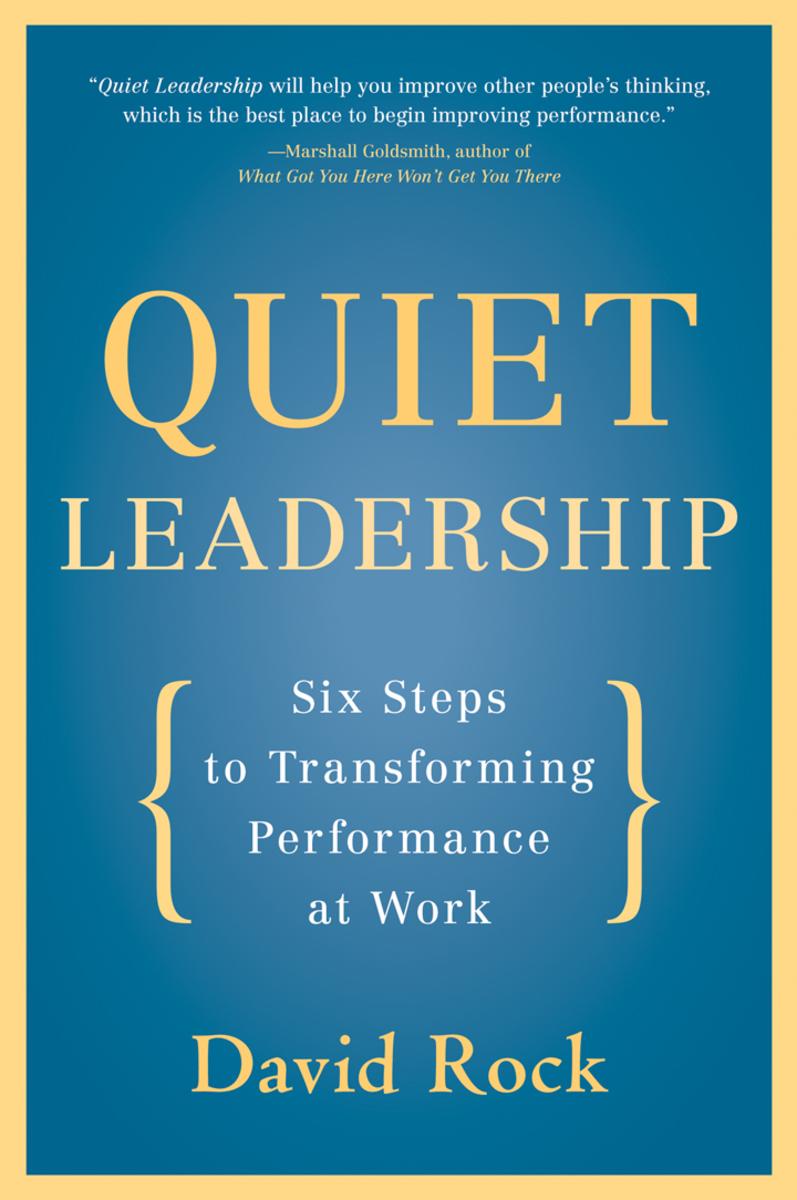
Quiet Leadership
¥95.11
Improving the performance of your employees involves one of the hardest challenges in the known universe: changing the way they think. In constant demand as a coach, speaker, and consultant to companies around the world, David Rock has proven that the secret to leading people (and living and working with them) is found in the space between their ears. "If people are being paid to think," he writes, "isn't it time the business world found out what the thing doing the work, the brain, is all about?" Supported by the latest groundbreaking research, Quiet Leadership provides a brain-based approach that will help busy leaders, executives, and managers improve their own and their colleagues' performance. Rock offers a practical, six-step guide to making permanent workplace performance change by unleashing higher productivity, new levels of morale, and greater job satisfaction.
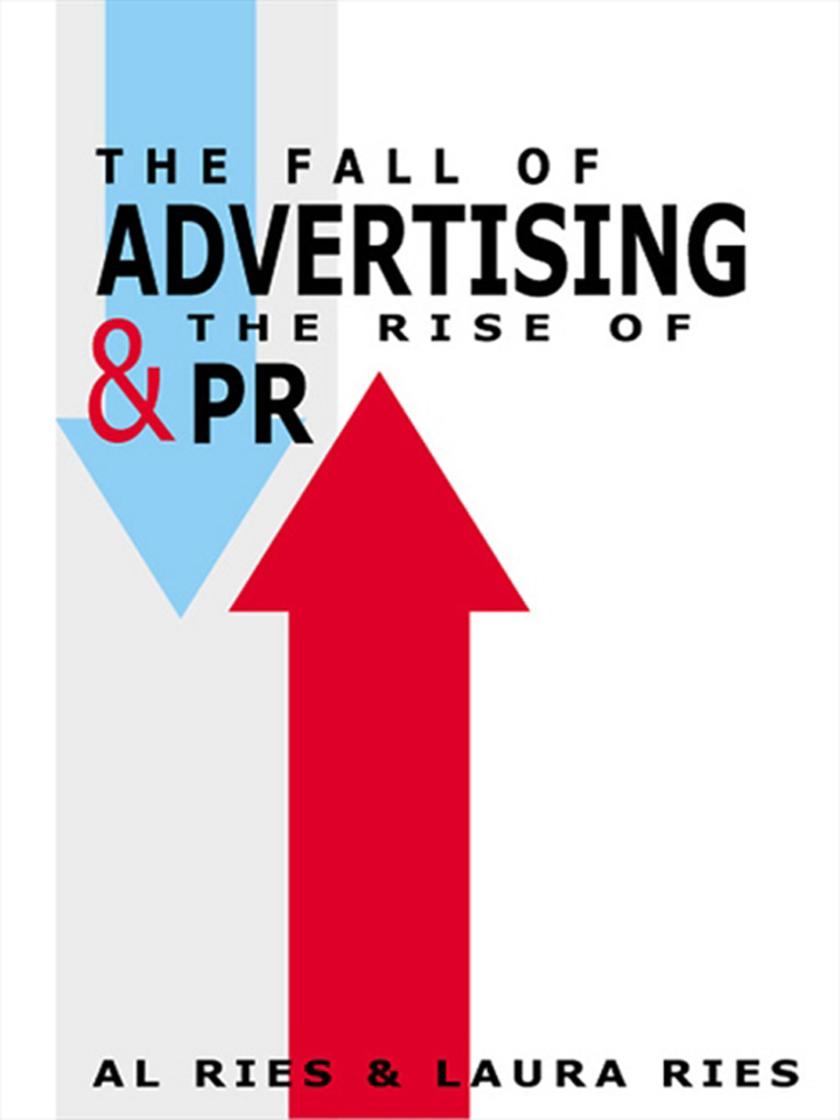
The Fall of Advertising and the Rise of PR
¥83.03
Bestselling authors and world-renowned marketing strategists Al and Laura Ries usher in the new era of public relations. Today's major brands are born with publicity, not advertising. A closer look at the history of the most successful modern brands shows this to be true. In fact, an astonishing number of brands, including Palm, Starbucks, the Body Shop, Wal-Mart, Red Bull and Zara have been built with virtually no advertising. Using in-depth case histories of successful PR campaigns coupled with those of unsuccessful advertising campaigns, The Fall of Advertising provides valuable ideas for marketers -- all the while demonstrating why advertising lacks credibility, the crucial ingredient in brand building, and how only PR can supply that credibility; the big bang approach advocated by advertising people should be abandoned in favor of a slow build-up by PR; advertising should only be used to maintain brands once they have been established through publicity. Bold and accessible, The Fall of Advertising is bound to turn the world of marketing upside down.
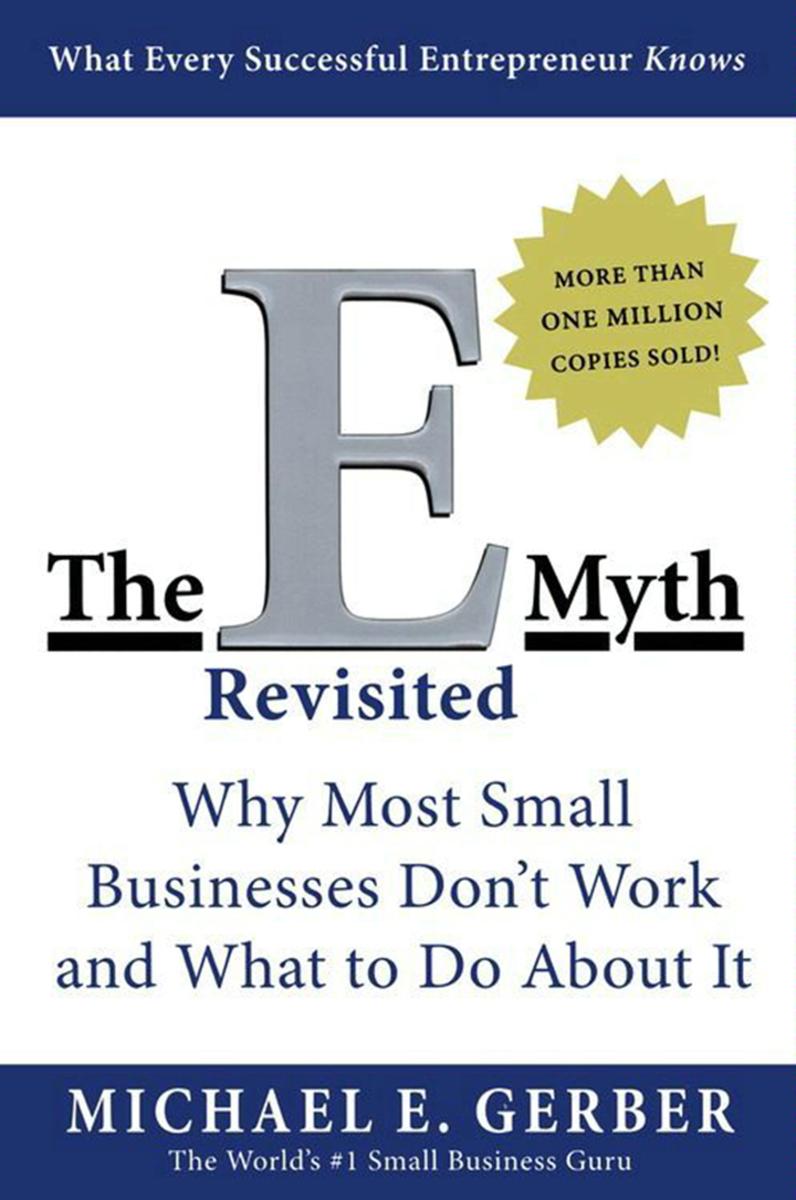
The E-Myth Revisited
¥134.30
An instant classic, this revised and updated edition of the phenomenal bestseller dispels the myths about starting your own business. Small business consultant and author Michael E. Gerber, with sharp insight gained from years of experience, points out how common assumptions, expectations, and even technical expertise can get in the way of running a successful business. Gerber walks you through the steps in the life of a business from entrepreneurial infancy through adolescent growing pains to the mature entrepreneurial perspective: the guiding light of all businesses that succeed and shows how to apply the lessons of franchising to any business, whether or not it is a franchise. Most importantly, Gerber draws the vital, often overlooked distinction between working on your business and working in your business. The E-Myth Revisited will help you grow your business in a productive, assured way.

The Cure
¥94.10
The riveting true story of John and Aileen Crowley's race to find a cure for Pompe disease that inspired the movie Extraordinary Measures With three beautiful children, a new house, and financial security, John and Aileen Crowley were on top of the world until their two youngest children, fifteen-month-old Megan and five-month-old Patrick, were diagnosed with Pompe disease and given only months to live. Refusing to accept a death sentence, John quit his financial consultant job and invested his life savings in a biotechnology start-up to research the disease and find a cure. Battling scientific setbacks, conflict of interest accusations, and business troubles, John and Aileen would be tested to their limits as they valiantly fought, and succeeded, in finding revolutionary new treatment for the disease offering hope to Megan, Patrick, and the many children and families affected by Pompe disease around the world. The inspiration for the captivating film Extraordinary Measures , starring Brendan Fraser and Harrison Ford, The Cure is a remarkable true story of cutting-edge science, business acumen and daring, and one family's indomitable spirit.
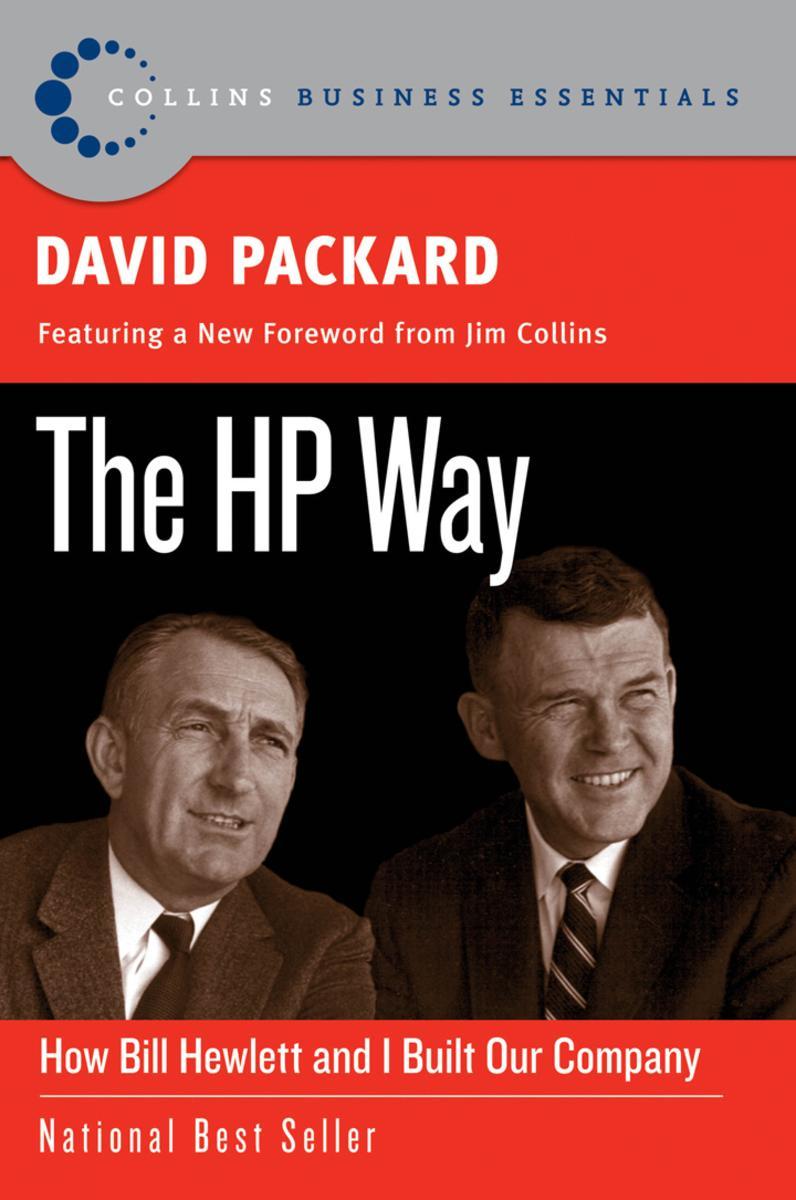
The HP Way
¥83.03
In the fall of 1930, David Packard left his hometown of Pueblo, Colorado, to enroll at Stanford University, where he befriended another freshman, Bill Hewlett. After graduation, Hewlett and Packard decided to throw their lots in together. They tossed a coin to decide whose name should go first on the notice of incorporation, then cast about in search of products to sell. Today, the one-car garage in Palo Alto that housed their first workshop is a California historic landmark: the birthplace of Silicon Valley. And Hewlett-Packard has produced thousands of innovative products for millions of customers throughout the world. Their little company employs 98,400 people and boasts constantly increasing sales that reached $25 billion in 1994. While there are many successful companies, there is only one Hewlett-Packard, because from the very beginning, Hewlett and Packard had a way of doing things that was contrary to the prevailing management strategies. In defining the objectives for their company, Packard and Hewlett wanted more than profits, revenue growth and a constant stream of new, happy customers. Hewlett-Packard success owes a great deal to many factors, including openness to change, an unrelenting will to win, the virtue of sustained hard work and a company-wide commitment to community involvement. As a result, HP now is universally acclaimed as the world most admired technology company; its wildly successful approach to business has been immortalized as The HP Way . In this book, David Packard tells the simple yet extraordinary story of his life work and of the truly exceptional company that he and Bill Hewlett started in a garage 55 years ago.

The Honest Truth About Dishonesty
¥95.11
The New York Times bestselling author of Predictably Irrational and The Upside of Irrationality returns with thought-provoking work to challenge our preconceptions about dishonesty and urge us to take an honest look at ourselves. Does the chance of getting caught affect how likely we are to cheatHow do companies pave the way for dishonestyDoes collaboration make us more honest or less soDoes religion improve our honestyMost of us think of ourselves as honest, but, in fact, we all cheat. From Washington to Wall Street, the classroom to the workplace, unethical behavior is everywhere. None of us is immune, whether it the white lie to head off trouble or padding our expense reports. In The (Honest) Truth About Dishonesty , award-winning, bestselling author Dan Ariely turns his unique insight and innovative research to the question of dishonesty. Generally, we assume that cheating, like most other decisions, is based on a rational cost-benefit analysis. But Ariely argues, and then demonstrates, that it actually the irrational forces that we don't take into account that often determine whether we behave ethically or not. For every Enron or political bribe, there are countless puffed r sum s, hidden commissions, and knockoff purses. In The (Honest) Truth About Dishonesty , Ariely shows why some things are easier to lie about; how getting caught matters less than we think; and how business practices pave the way for unethical behavior, both intentionally and unintentionally. Ariely explores how unethical behavior works in the personal, professional, and political worlds, and how it affects all of us, even as we think of ourselves as having high moral standards. But all is not lost. Ariely also identifies what keeps us honest, pointing the way for achieving higher ethics in our everyday lives. With compelling personal and academic findings, The (Honest) Truth About Dishonesty will change the way we see ourselves, our actions, and others.
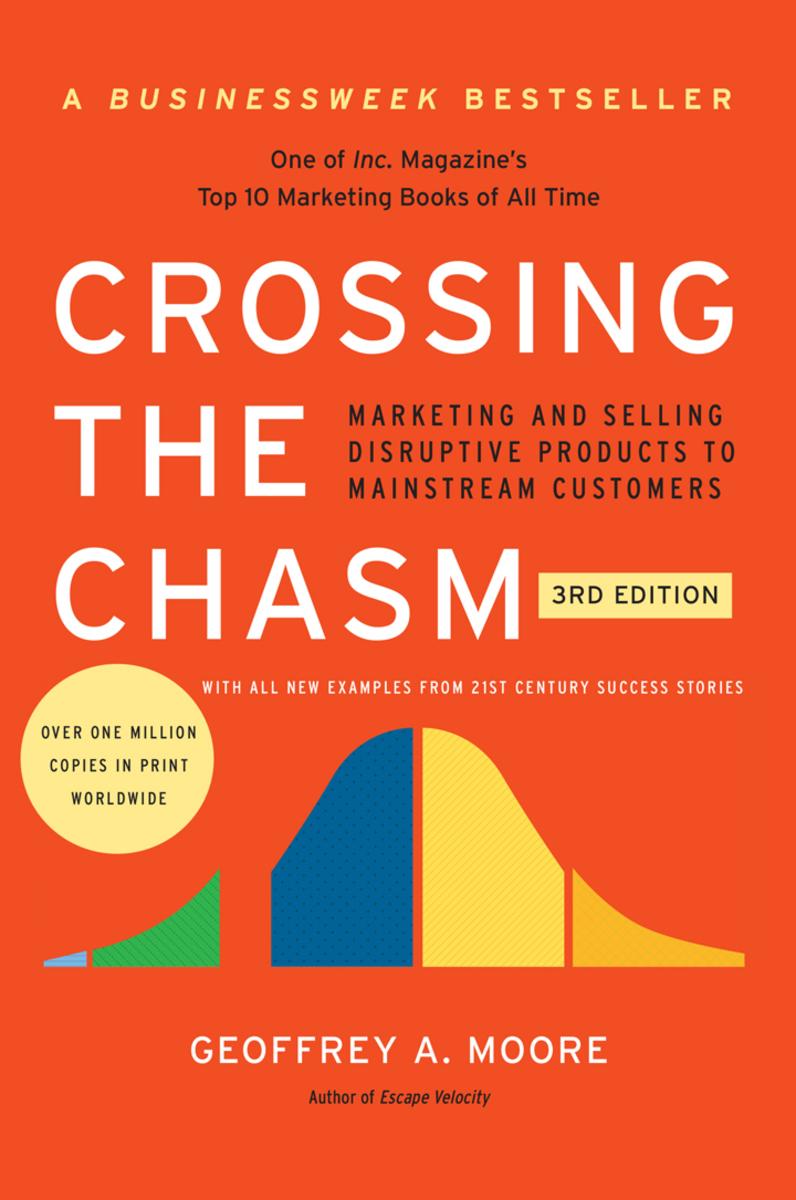
Crossing the Chasm, 3rd Edition
¥123.10
The bible for bringing cutting-edge products to larger markets now revised and updated with new insights into the realities of high-tech marketing In Crossing the Chasm , Geoffrey A. Moore shows that in the Technology Adoption Life Cycle which begins with innovators and moves to early adopters, early majority, late majority, and laggards there is a vast chasm between the early adopters and the early majority. While early adopters are willing to sacrifice for the advantage of being first, the early majority waits until they know that the technology actually offers improvements in productivity. The challenge for innovators and marketers is to narrow this chasm and ultimately accelerate adoption across every segment. This third edition brings Moore's classic work up to date with dozens of new examples of successes and failures, new strategies for marketing in the digital world, and Moore's most current insights and findings. He also includes two new appendices, the first connecting the ideas in Crossing the Chasm to work subsequently published in his Inside the Tornado , and the second presenting his recent groundbreaking work for technology adoption models for high-tech consumer markets.

Predictably Irrational, Revised and Expanded Edition
¥94.10
How do we think about moneyWhat caused bankers to lose sight of the economyWhat caused individuals to take on mortgages that were not within their meansWhat irrational forces guided our decisionsAnd how can we recover from an economic crisisIn this revised and expanded edition of the New York Times and Wall Street Journal bestseller Predictably Irrational , Duke University's behavioral economist Dan Ariely explores the hidden forces that shape our decisions, including some of the causes responsible for the current economic crisis. Bringing a much-needed dose of sophisticated psychological study to the realm of public policy, Ariely offers his own insights into the irrationalities of everyday life, the decisions that led us to the financial meltdown of 2008, and the general ways we get ourselves into trouble. Blending common experiences and clever experiments with groundbreaking analysis, Ariely demonstrates how expectations, emotions, social norms, and other invisible, seemingly illogical forces skew our reasoning abilities. As he explains, our reliance on standard economic theory to design personal, national, and global policies may, in fact, be dangerous. The mistakes that we make as individuals and institutions are not random, and they can aggregate in the market with devastating results. In light of our current economic crisis, the consequences of these systematic and predictable mistakes have never been clearer. Packed with new studies and thought-provoking responses to readers' questions and comments, this revised and expanded edition of Predictably Irrational will change the way we interact with the world from the small decisions we make in our own lives to the individual and collective choices that shape our economy.
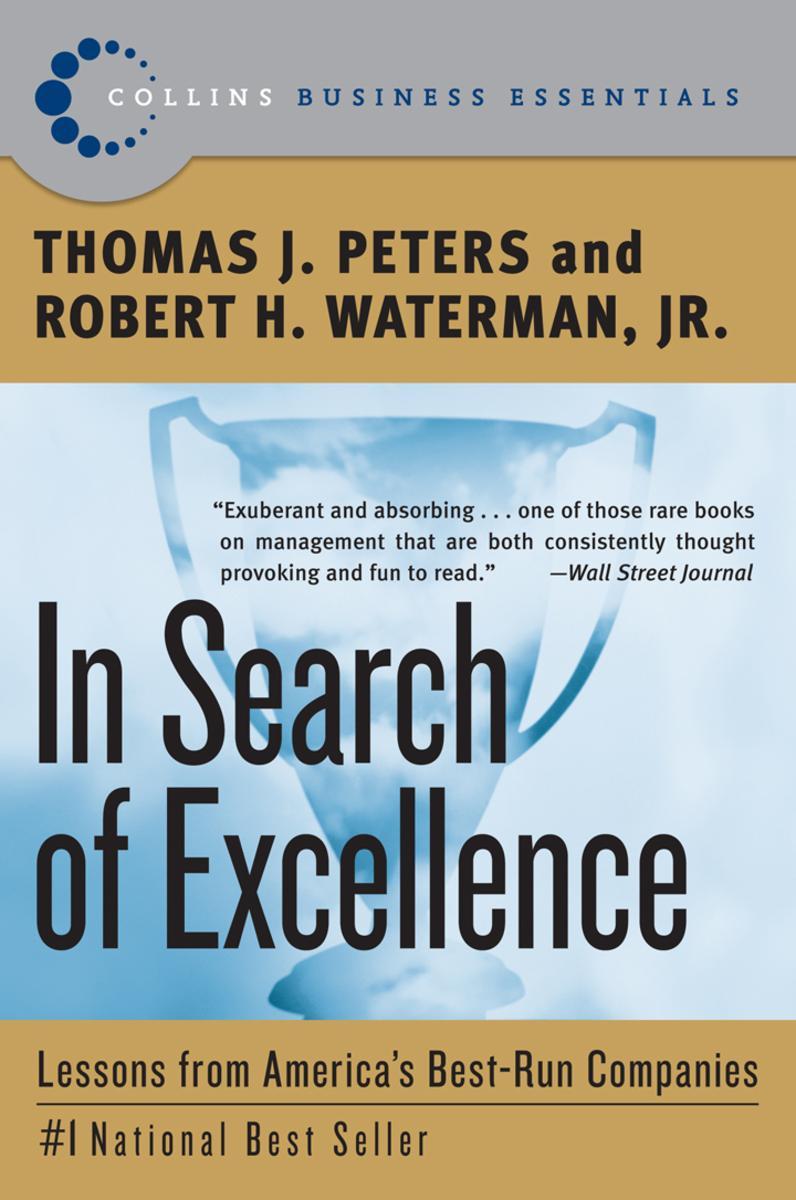
In Search of Excellence
¥101.00
The Greatest Business Book of All Time (Bloomsbury UK), In Search of Excellence has long been a must-have for the boardroom, business school, and bedside table. Based on a study of forty-three of America best-run companies from a diverse array of business sectors, In Search of Excellence describes eight basic principles of management -- action-stimulating, people-oriented, profit-maximizing practices -- that made these organizations successful. Joining the HarperBusiness Essentials series, this phenomenal bestseller features a new Authors' Note, and reintroduces these vital principles in an accessible and practical way for today management reader.
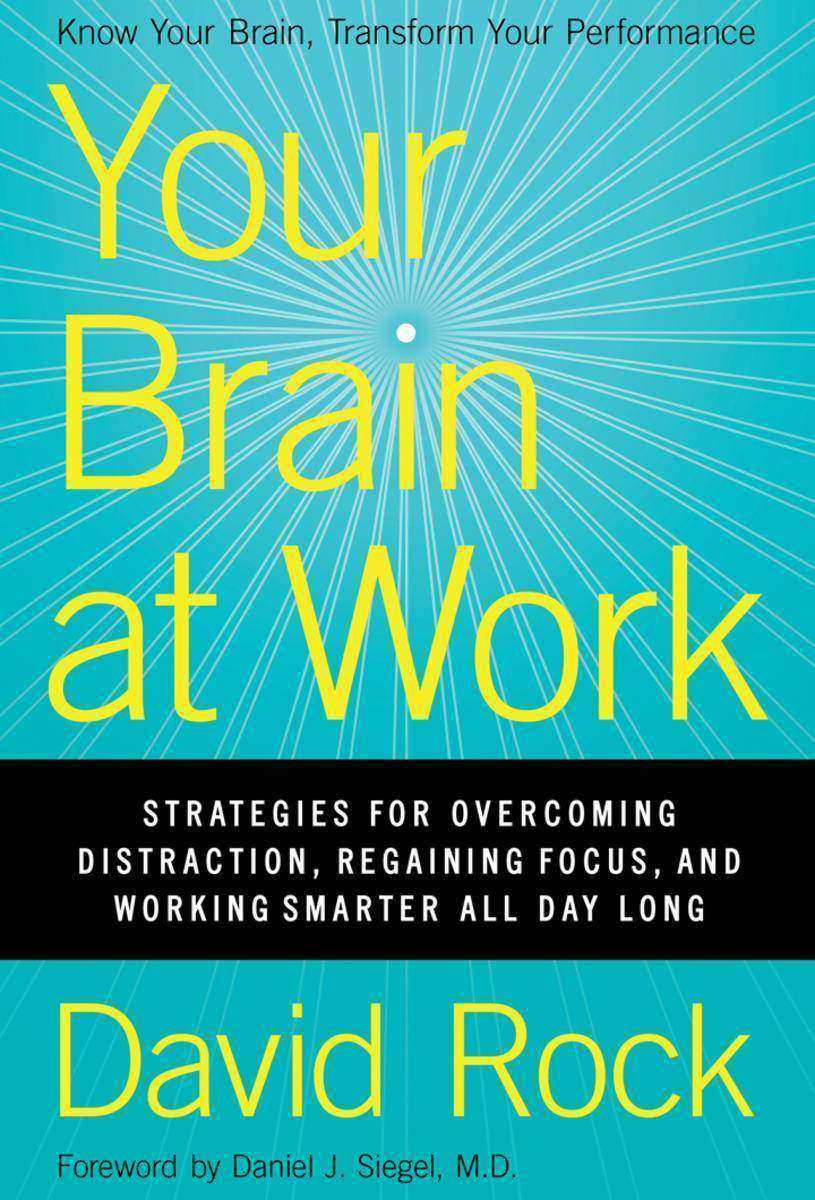
Your Brain at Work
¥166.09
Meet Emily and Paul, the parents of two young children. Emily is a newly promoted executive in a large corporation, while Paul has his own business as a consultant. Their lives, like all of ours, are filled with a bewildering blizzard of emails, phone calls, yet more emails, meetings, projects, proposals, and plans. For them, just staying ahead of the storm has become a seemingly insurmountable task. In this book, we travel inside the brains of Emily and Paul as they attempt to sort the vast quantities of information they're presented with and figure out how to prioritize, organize, and act on it. Fortunately for Emily and Paul and for readers of Your Brain at Work they're in good hands: David Rock knows how the brain works and more specifically, how it works in a work setting. Your Brain at Work explores: Why your brains feels so taxed, and how to take full advantage of your mental resources Why it's so hard to focus, and how to better manage distractions How to maximize your chance of finding insights that can solve seemingly insurmountable problems How to keep your cool in any situation, so that you can make the best decisions possible How to collaborate with others more effectively Why providing feedback is so difficult, and how to make it easier How to effectively change other people's behavior Rock shows how it's possible not only to survive in today's overwhelming work environment but to succeed in it and still feel energized at the end of the day, with a sense of accomplishment.

What Would Google Do?
¥88.56
A bold and vital book that asks and answers the most urgent question of today: What Would Google DoIn a book that's one part prophecy, one part thought experiment, one part manifesto, and one part survival manual, internet impresario and blogging pioneer Jeff Jarvis reverse-engineers Google the fastest-growing company in history to discover forty clear and straightforward rules to manage and live by. At the same time, he illuminates the new worldview of the internet generation: how it challenges and destroys, but also opens up vast new opportunities. His findings are counterintuitive, imaginative, practical, and above all visionary, giving readers a glimpse of how everyone and everything from corporations to governments, nations to individuals must evolve in the Google era. Along the way, he looks under the hood of a car designed by its drivers, ponders a worldwide university where the students design their curriculum, envisions an airline fueled by a social network, imagines the open-source restaurant, and examines a series of industries and institutions that will soon benefit from this book's central question. The result is an astonishing, mind-opening book that, in the end, is not about Google. It's about you.
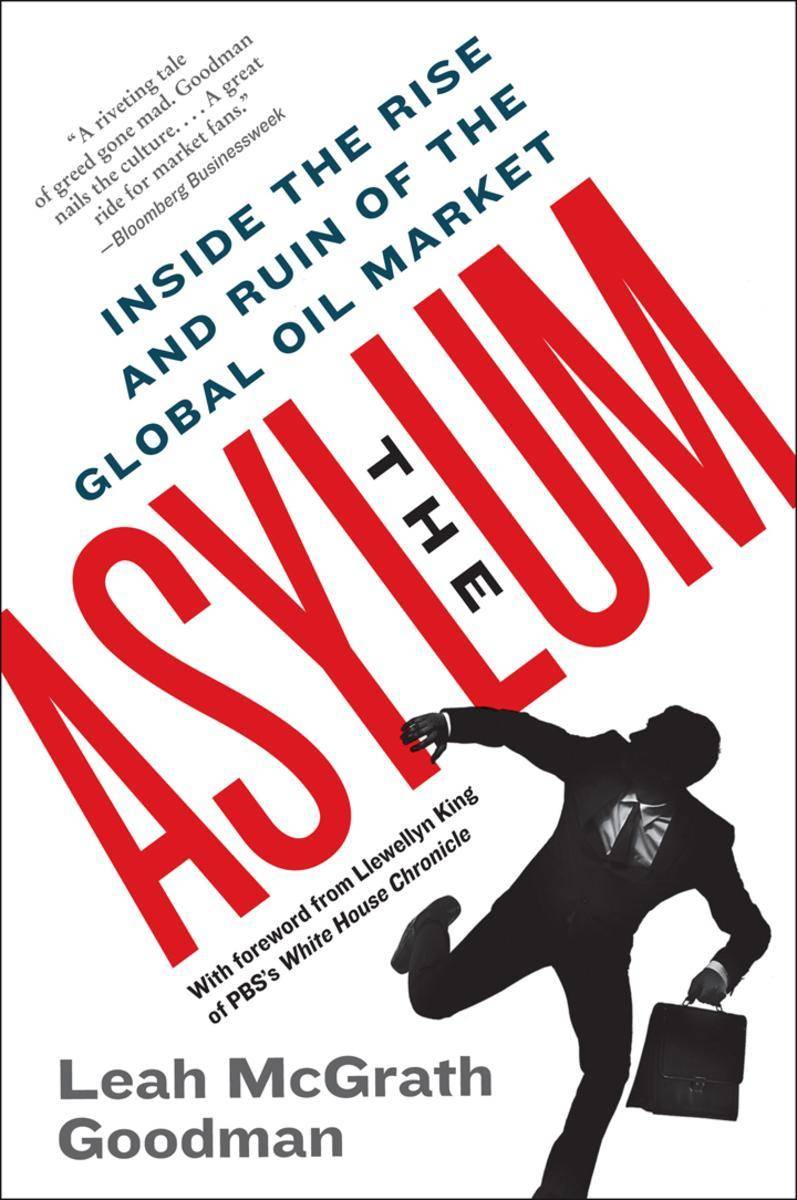
The Asylum
¥88.56
They were a band of outsiders unable to get jobs with New York's gilded financial establishment. They would go on to corner the world's multitrillion-dollar oil market, reaping unimaginable riches while bringing the economy to its knees. Meet the self-anointed kings of the New York Mercantile Exchange. In some ways, they are everything you would expect them to be: a secretive, members-only club of men and women who live lavish lifestyles; cavort with politicians, strippers, and celebrities; and blissfully jacked up oil prices to nearly $150 a barrel while profiting off the misery of the working class. In other ways, they are nothing you can imagine: many come from working-class families themselves. The progeny of Jewish, Irish, and Italian immigrants who escaped war-torn Europe, they take pride in flagrantly spurning Wall Street. Under the thumb of an all-powerful international oil cartel, the energy market had long eluded the grasp of America's hungry capitalists. Neither the oil royalty of Houston nor the titans of Wall Street had ever succeeded in fully wresting away control. But facing extinction, the rough-and-tumble traders of Nymex led by the reluctant son of a producemerchant went after this Goliath and won, creating the world's first free oil market and minting billions in the process. Their stunning journey from poverty to prosperity belies the brutal and violent history that is their legacy. For the first time, The Asylum unmasks the oil market's self-described "inmates" in all their un*ed and dysfunctional glory: the happily married father from Long Island whose lust for money and power was exceeded only by his taste for cruel pranks; the Italian kung fu fighting gasoline trader whose ferocity in the trading pits earned him countless millions; the cheerful Nazi hunter who traded quietly by day and ambushed Nazi sympathizers by night; and the Irish-born femme fatale who outsmarted all but one of the exchange's chairmen the Hungarian emigre who, try as he might, could do nothing to rein in the oil market's unruly inhabitants. From the treacherous boardroom schemes to the hookers and blow of the trading pits; from the repeat terrorist attacks and FBI stings to the grand alliances and outrageous fortunes that brought the global economy to the brink, The Asylum ventures deep into the belly of the beast, revealing how raw ambition and the endless quest for wealth can change the very nature of both man and market. Showcasing seven years of research and hundreds of hours of interviews, Leah McGrath Goodman reveals what really happened behind the scenes as oil prices topped out and what choice the traders ultimately made when forced to choose between their longtime brotherhood and their precious oil monopoly.
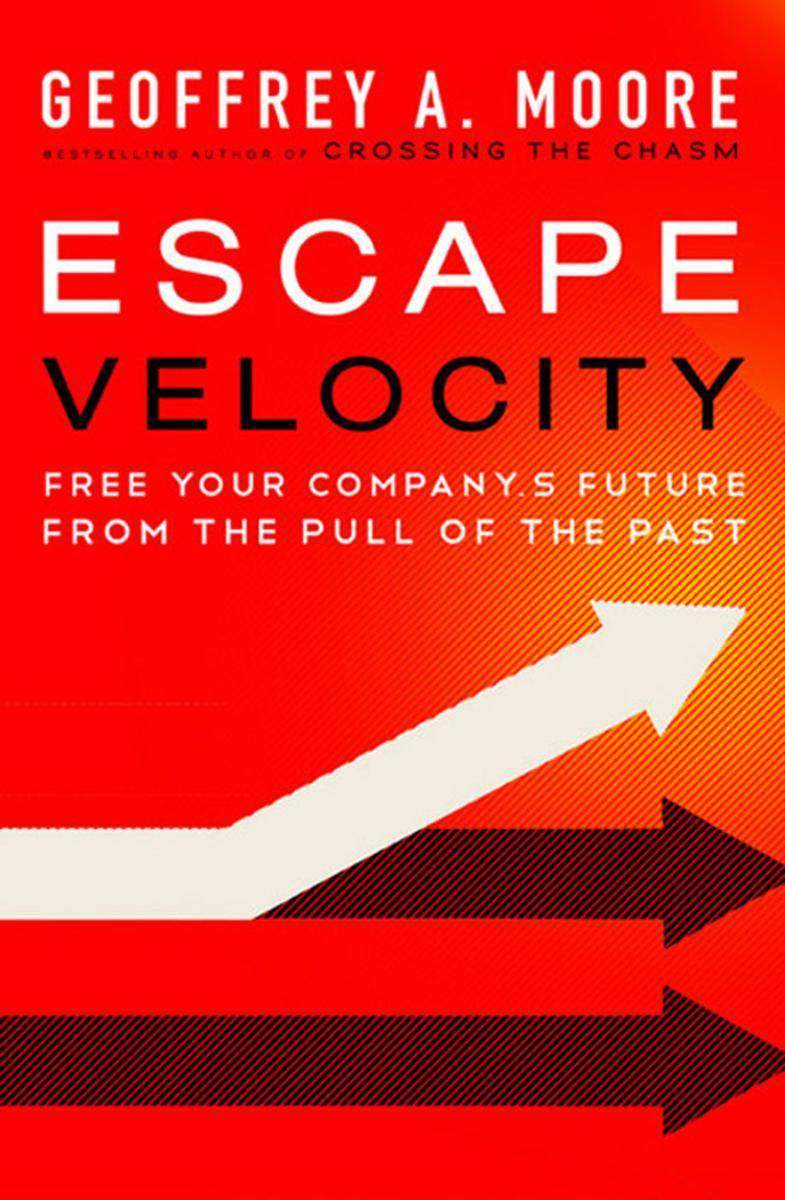
Escape Velocity
¥157.15
From the world leading high-tech strategist comes the definitive road map to help established companies create next-generation growth. Geoffrey Moore now-classic Crossing the Chasm became a must-read book by presenting an innovative framework to address the make-or-break obstacle facing all high-tech companies: how to gain market share from early adopters and from mainstream consumers. Based on twenty years’ experience advising the top leaders of many of the world most successful enterprises, Moore Escape Velocity offers a pragmatic plan to engage the most critical challenge that established enterprises face in the twenty-first-century economy: how to move beyond past success and drive next-generation growth from new lines of business. As he worked with senior management teams, Moore repeatedly found that executives were trapped by short-term performance-based compensation schemes. The result was critical decision-makers overweighting their legacy commitments, an embarrassingly low success rate in new-product launches, and a widespread failure to sustain any kind of next-generation business at scale. In Escape Velocity , Moore presents a cogent strategy for generating future growth within an established enterprise. Organized around a hierarchy of powers category power, company power, market power, offer power, and execution power this insightful work shows how each level of power can be orchestrated to achieve overall success. Moore explains how to use mergers and acquisitions as well as organic innovation to systematically migrate an enterprise portfolio out of lower-growth and into higher-growth categories; how to reallocate resources across an enterprise in deliberately asymmetrical ways to create a powerful and sustainable foundation for a long-term competitive advantage; how to leverage target-market initiatives as accelerants to growth and as stepping-stones to broad overall category success; how to create unmatchable offerings by being swift to neutralize competitors’ innovations and laser-focused on driving in-house innovations to make a business impervious to competitors; how to fundamentally change the execution cadence of an organization, pushing change from innovation to broad deployment, creating an irreversible tipping point along the way. Drawing from thousands of hours spent face-to-face with CEOs and their teams, Moore presents case examples and best practices. While his experience is deeply rooted in the high-tech sector, his models and techniques apply well beyond this arena, including to the public sector. At a time when the world is looking to established enterprises for growth and stability, Moore analysis is penetrating and his pre*ions are right on the mark. Escape Velocity gives executives and their teams a practical way forward to take advantage of the opportunities amid industry and economic disruptions.
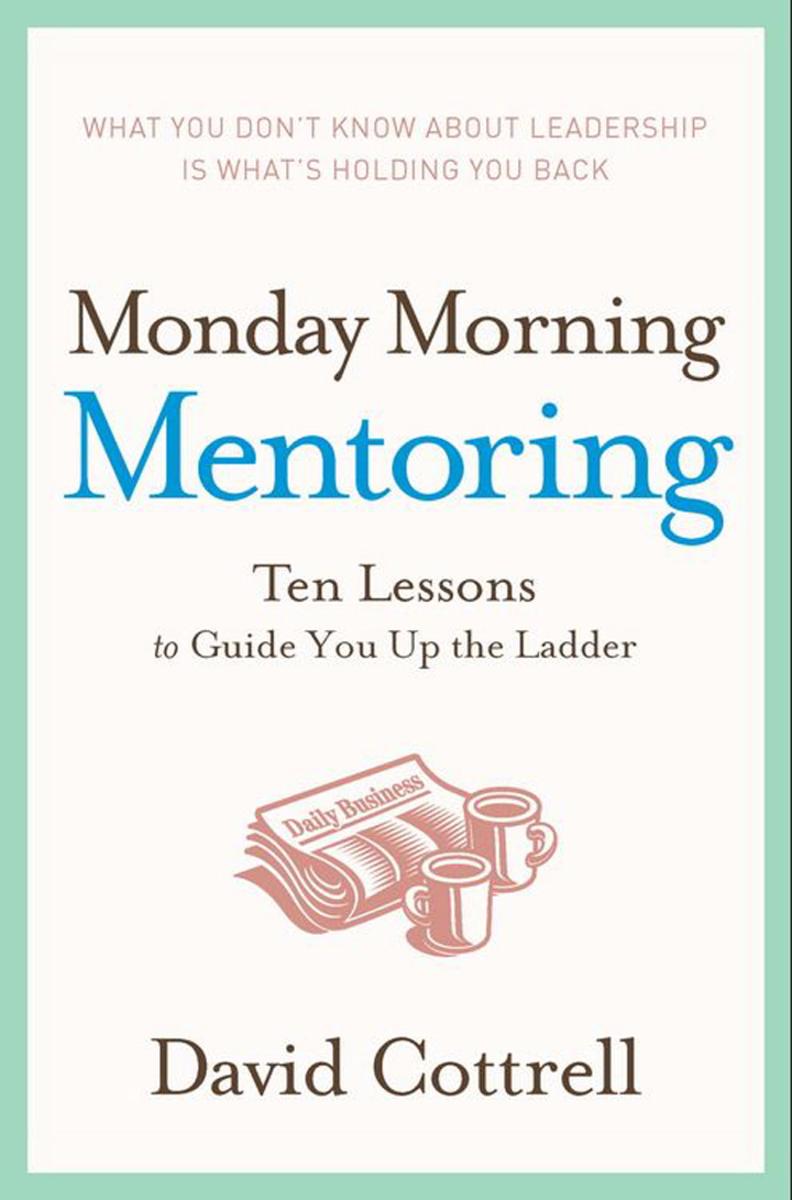
Monday Morning Mentoring
¥123.45
Everyone who wants a fulfilling career needs a mentor -- someone who has seen it all before, someone who can share hard-won experiences and teach valuable lessons. In this expanded and enhanced version of his best-selling book, Monday Morning Leadership , David Cottrell packs all of the wisdom of his wide-ranging business experience into this inspirational story. Cottrell introduces us to Jeff, a successful corporate manager who has hit a major wall. Jeff has been leading his team, quarter after quarter, to great sales and better profits for several years -- until now. The tricks that used to work wonders have lost their magic; Jeff is in a slump and is at a loss to find his way out of it. Overworked, stressed, and feeling that his personal and professional lives are at risk, Jeff reaches out to the father of a college buddy, a retired and tremendously accomplished former executive named Tony. Tony and Jeff agree to meet every Monday for ten weeks to work through Jeff's problems and get his career back on track. In the course of these intimate sessions, Jeff discovers the secrets of real leadership: "Until I accept total responsibility -- no matter what -- I will not be able to put plans in place to accomplish my goals." And, "My success is the result of making better choices and recovering quickly from poor choices." Tony leads Jeff through tough lessons in how to manage his people, how to manage his own time, how to manage his superiors, and how to escape from "management land." Most of all, Jeff learns that his success is intimately bound with the success of his people and that tolerating lackluster performance in himself and others on the team only leads to discontent from his most prized and productive employees. Through Jeff's mentoring sessions, the reader meets a character of integrity who dispenses homespun but effective wisdom. Spend time with Tony and Jeff at their Monday morning meetings, and you will find yourself on the road to becoming a better leader and being more successful at work.




 购物车
购物车 个人中心
个人中心



